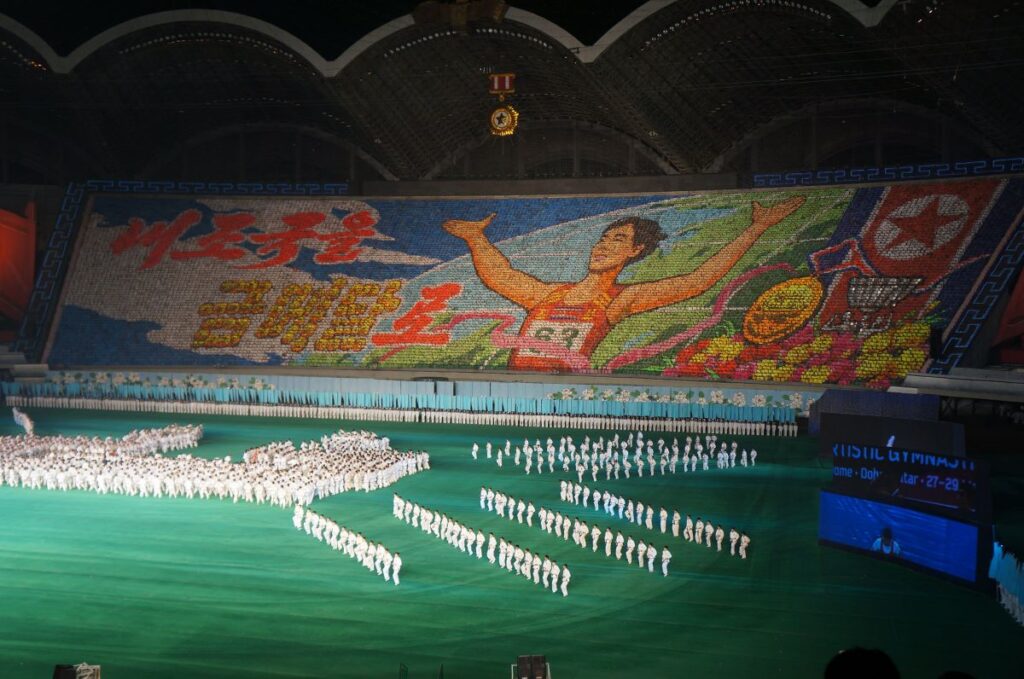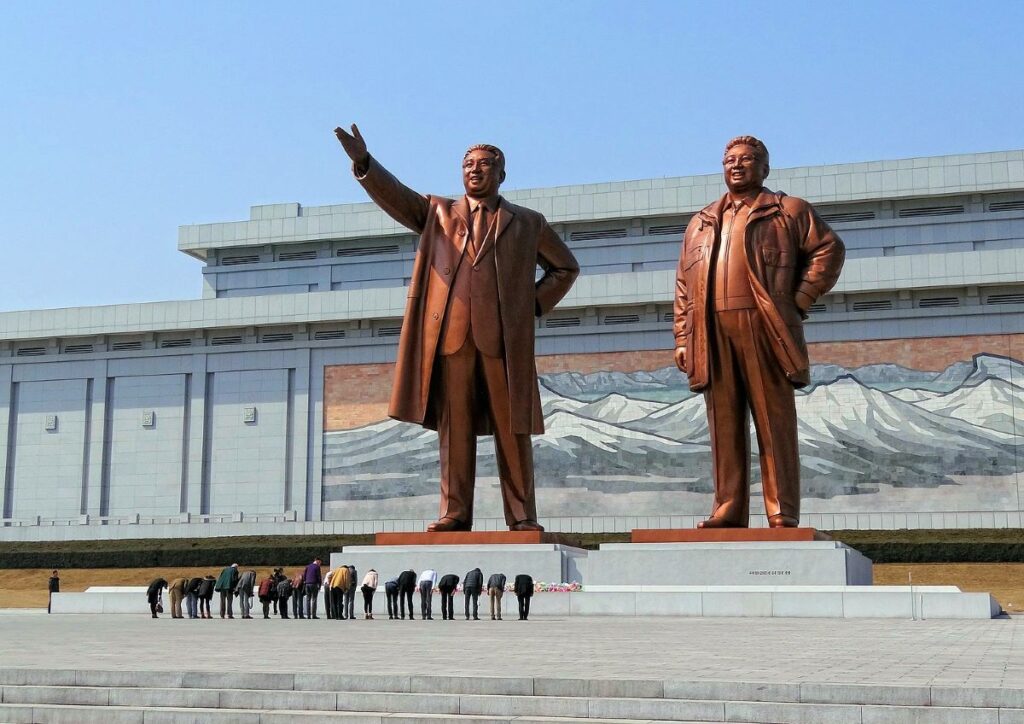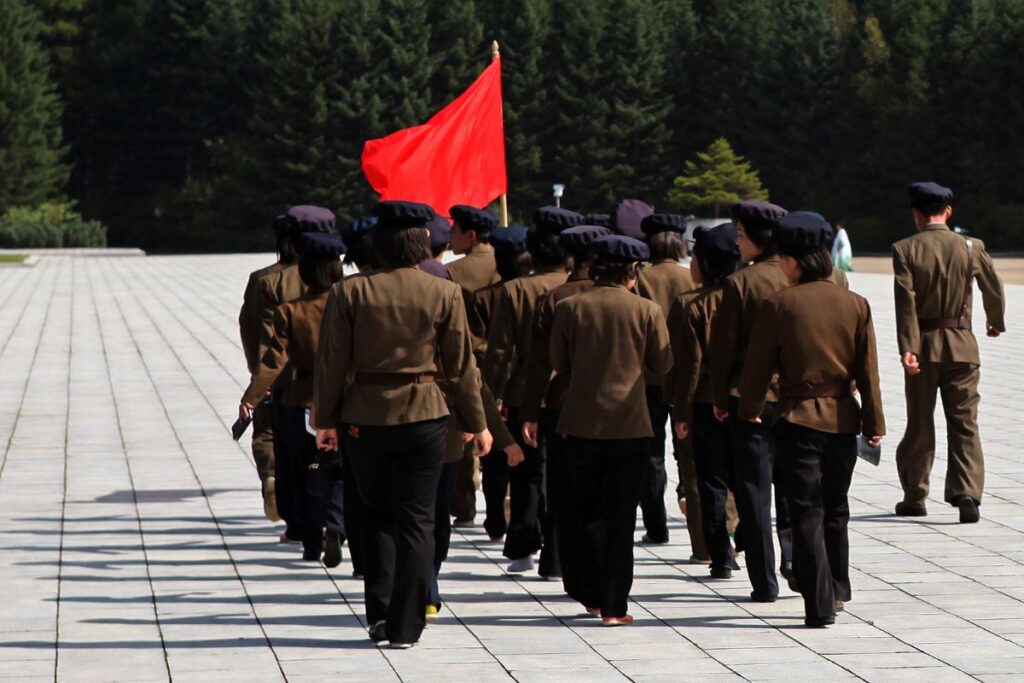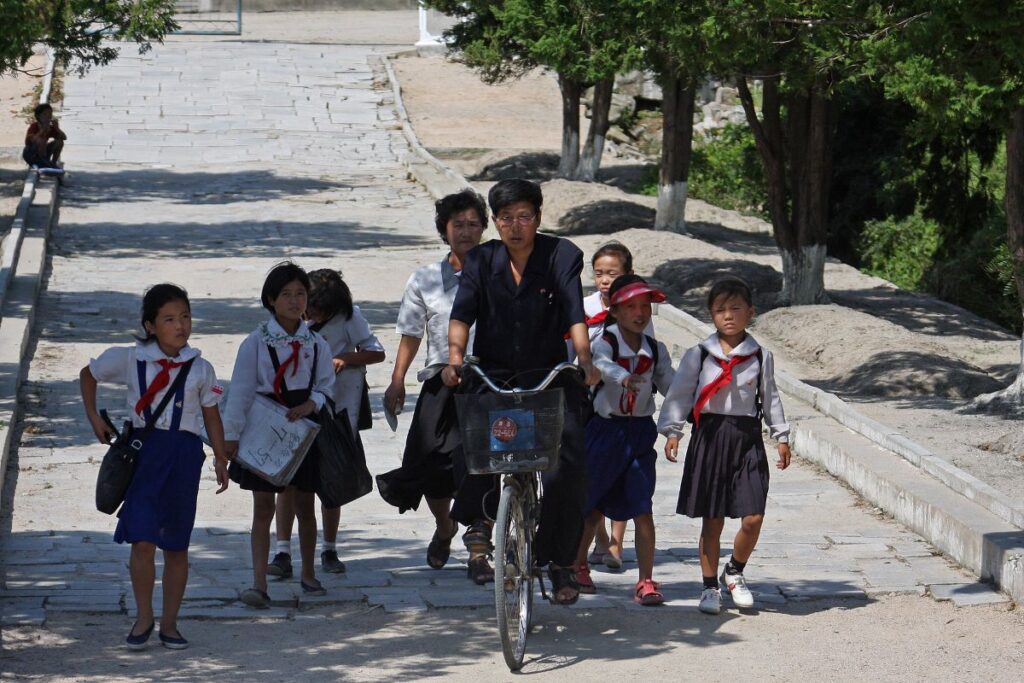Welcome to the article about the mysterious realm of North Korea, a country that holds a multitude of remarkable facts waiting to captivate players of the Worlde game and all inquisitive souls intrigued by the diverse facets of the world’s countries.
The World’s Largest Stadium

Within the heart of Pyongyang, North Korea’s capital, lies the Rungrado 1st of May Stadium, an awe-inspiring structure that claims the title of the world’s largest sports stadium. With a staggering capacity to hold up to 150,000 people, this iconic arena officially debuted on May 1, 1989.
The stadium is renowned for hosting the mesmerizing Arirang Mass Games, where tens of thousands of North Korean gymnasts enthral massive crowds in a spectacle of unmatched grandeur. In 2007, the Arirang Mass Games etched its name in the Guinness World Records with the largest gymnastic display involving precisely 100,090 gymnasts, artists, and performers.
Necrocracy

North Korea’s distinctive style of governance, known as Necrocracy, centers around a deceased leader’s continued influence on the nation’s affairs. Kim Il-sung, declared the Eternal Leader of the Democratic People’s Republic of Korea (DPRK), bestows perpetual authority over the country.
While incumbent leaders hold titles like Supreme Leader and Chairman, the legacy of Kim Il-sung endures. The Supreme Leader, though presiding over the Worker’s Party and the Army as their supreme commander, does not occupy the role of the country’s president, forever distinguishing North Korea’s governance structure.
Outstanding Military Service

North Korea stands out with its comprehensive compulsory military service for both men and women. While other nations implement obligatory service, North Korea’s commitment is profound. Males above 18 years old were required to serve for 13 years, later reduced to 10 years in 2003. In 2015, North Korean women were also integrated into this mandatory service.
The country boasts a substantial paramilitary and active military presence, with around 6 million paramilitary personnel and 1 million active-duty military personnel, constituting the fourth-largest standing army globally.
Restricted Tourist Zones

Venturing into North Korea demands adherence to guided tours due to limited tourist-accessible areas. The historically restricted Pyongyang has recently opened up to visitors, with Lou, a northeastern town, offering foreigners the freedom to explore, interact, and photograph.
The nation seeks to boost development and tourism in this region. Despite North Korea’s nine provinces, 28 cities, and several Special Economic Zones, only 15 cities are accessible to foreign tourists, underlining the country’s controlled tourism landscape.
Licensed Bicycles

Intriguingly, bicycles in North Korea are not only registered but also require license plates, paralleling the regulations applicable to cars. Owning a car in the country is exceedingly challenging due to high costs and exclusivity.
The acquisition of a bicycle, similarly regulated, adds a unique layer to North Korea’s transportation dynamics, emphasizing the country’s distinct approach even to everyday objects.
Conclusion
The voyage through North Korea’s extraordinary realities unveils a nation marked by its unusual governance, distinctive military service, and controlled tourism landscape. The country’s distinctive features provide a glimpse into a realm that blends uniqueness with mystery, inviting us to delve deeper into the captivating tapestry of North Korea.
If you enjoyed exploring this marvellous world’s diversities, join us in Wordle Game, and Guess the country we will write about tomorrow. Play the Worldle now!